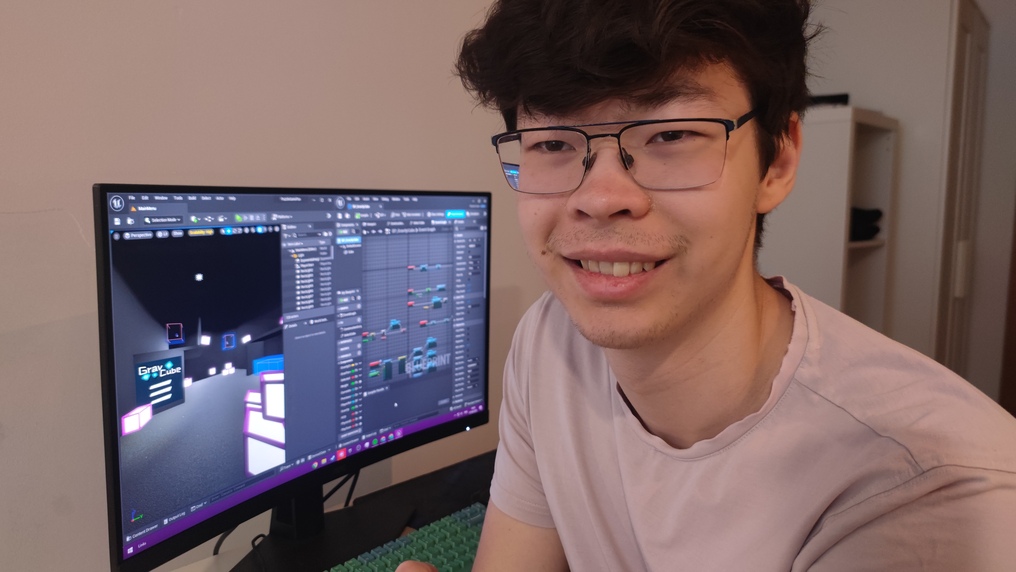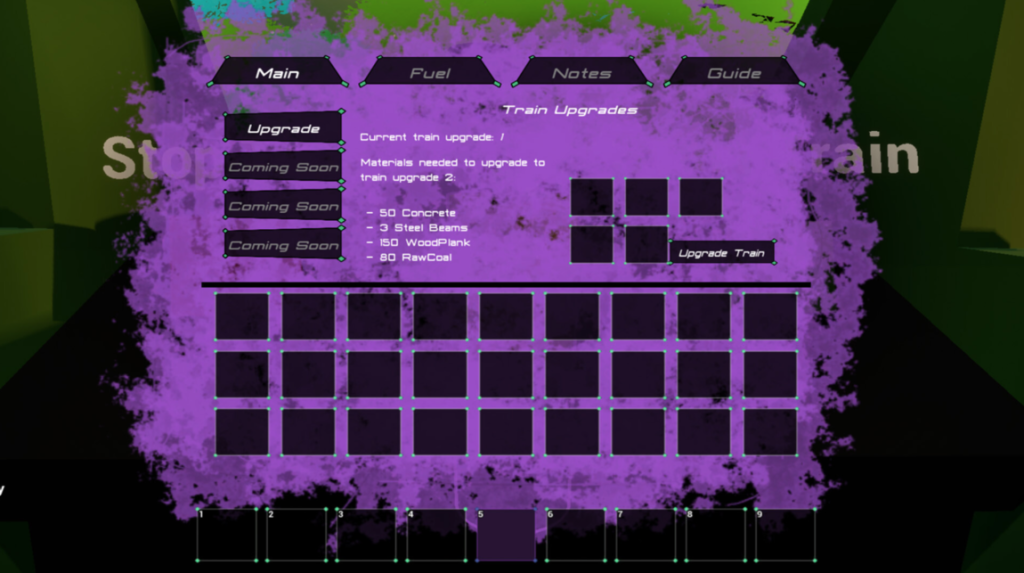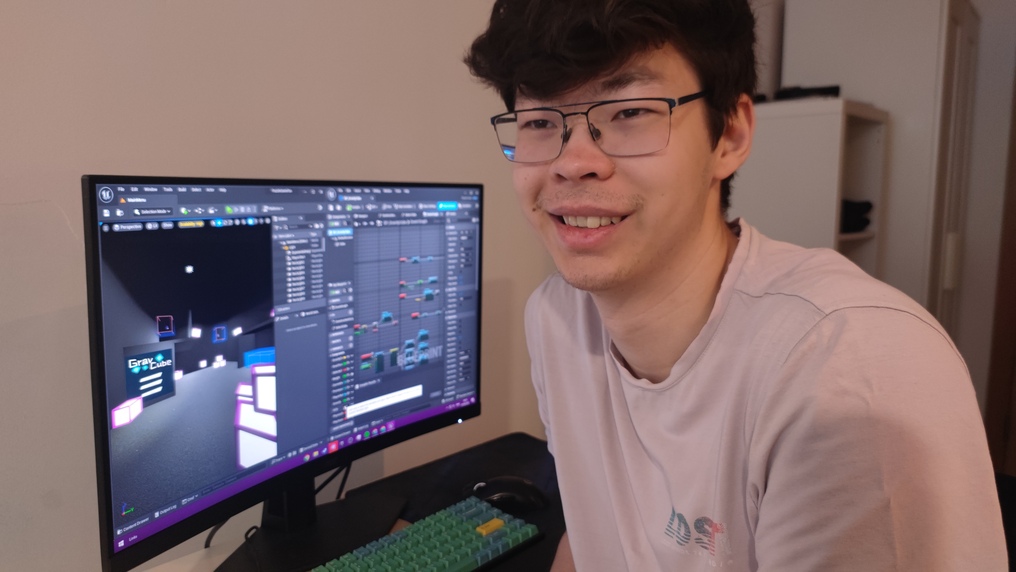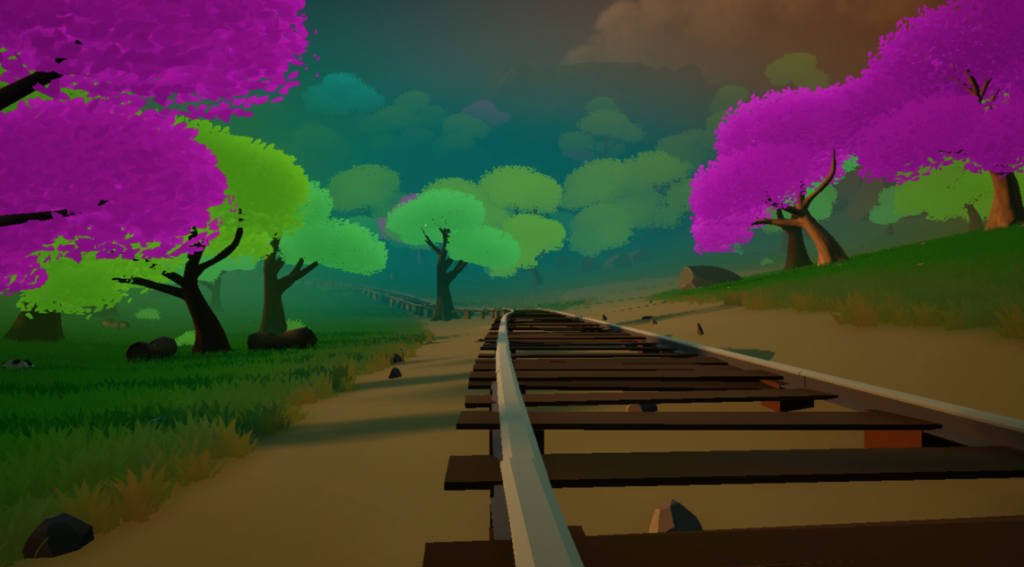Game Design Student Mats Van Dommelen was a competitive player before taking the step into the mechanics of games.
Originally from the Netherlands, it was after the Covid lockdowns eased that Mats chose to take on a course with us in the UK to enhance his education and forge a new international network of friends and collaborators.
In our interview, Mats shares how he has found his time with SAE so far alongside his future ambitions. If you’d like to follow in the footsteps of Mats and learn more about our courses, then contact our team now.
What was your way into the gaming world?
I was introduced to gaming when my parents gave me a DSi in 2007 and was introduced to many Nintendo games at the time. However, I started my journey when my family got a laptop share, this is when I discovered games like agar.io, Minecraft and later on, CS:GO. I realised that I was a very competitive gamer at the time, I liked spending many hours improving my skill level rather than trying out a bunch of games. This led me to have a lot of very specific gaming knowledge but I lacked knowledge about a larger variety.
What led you to study at SAE?
After Covid-19 had settled down, I was unsure of what to do. I had just finished high school in the Netherlands and didn’t know exactly what my next steps would be. I started by setting up a business back in high school. It was fun at the start but I quickly realised this wasn’t my calling. After high school, I tried getting into trading and even did some gardening work for a company.
Finally, I started teaching myself JavaScript and this was my way into the world of game development. The year before SAE, I did an online course in game development and design. While doing so, I realised this was what I wanted to do, so I started looking for universities. I mainly looked at the UK because I wanted to study abroad to improve my English and create international connections. I landed on the SAE website and was immediately hooked due to the cost and two-year accelerated degree. As I looked further into it, I saw that the classes were rather small compared to other universities, and this is what made me apply.
And how have you found your time on the course?
Currently, I am in the last week of my second trimester and I love it. The first trimester was very similar to what I had studied before but this gave me time to settle into the UK and find my way in the city. The second trimester was much more intense and had many topics that I hadn’t looked into yet. However, I did really enjoy this trimester as I learned so much, not only about what a game designer is, but also about my way of learning and planning.
What have been the key things you’ve learned?
One of the most important things I have learned so far is how to manage a team. As a game designer, it is really important to understand team dynamics so you can lead your team to success. The other, arguably more important, thing I learned is documenting my progress correctly using learning journals and doing research on various topics to add to my design. This last trimester we did an essay about the history, culture or ethics in the gaming industry. This taught me a lot about how to research and reference correctly, a skill that will benefit me throughout my entire career.
How do your studies play into your wider career ambitions?
My dream career is to work for a small indie gaming company. I do realise that this is not easy to start as but rather a long-term career goal. However, I think my studies will help me develop a professional portfolio that I can use to eventually land a junior job at a gaming company. Furthermore, it will also improve my writing skills and team management skills. Even outside of the gaming industry, these skills are relevant to have.
I’d love to know more about the projects you’ve worked on – what have been the highlights for you?
In my studies, I have worked on two projects so far, Corrupted and GravCube. As much as I loved working on Corrupted, I think GravCube’s design is much better and has more potential to grow in the future. Outside of my course, I have worked on my portfolio game Chemia before I joined SAE. This is my biggest project yet and is currently on Steam as a playtest. This was my first gaming project and has therefore a special place in my heart.
What are you looking to do next? Do you have any current projects you’re working on or looking forward to?
Currently, I am finishing my game GravCube. However, after this trimester I have a really exciting project coming up. During this break, I want to recreate one of my favourite games on the Minecraft server called CubeCraft. A long time ago, they had a Tower Wars game mode that I really enjoyed playing, and they removed it in 2019. I really want to work on a game like this to figure out multiplayer and skill-based matchmaking. This will be my next project alongside updating some of my older work.
Do you have any advice for anyone contemplating doing the course?
My biggest advice to anyone doing the course is to choose projects that inspire you. During the course, you will be making many games with some restrictions. However, you are free to add your own twist to them to make them your own. If you choose to make your game your own, it greatly helps you with motivation even in harder times. Choose something that inspires you!
Who are your biggest gaming inspirations? Are there any designers or games that you look to for inspiration?
I have spent many thousands of hours in the game Counter-Strike and the Steam Community Market. I think Valve has had one of the greatest influences on my gaming journey. I am very interested in the skins market from the game Counter-Strike, I think it’s such an interesting phenomenon to have an open market like that with barely any regulations in place. Apart from Valve though, I think some indie studios like Coffee Stain Studios from Satisfactory and Kinetic Games from Phasmophobia are some of my inspirations when it comes to studios that I would like to work for in the future.
STUDY GAME development AT SAE
SAE offers two-year accelerated degree courses in growth creative media industries including Game Design, Game Art and Animation and Games Programming – all aimed at helping the next generation of creative professionals get ahead.
From our expert tutors to our cutting-edge computer labs, SAE’s degree will enable you to master a range of both technical and practical industry-relevant skills.


































